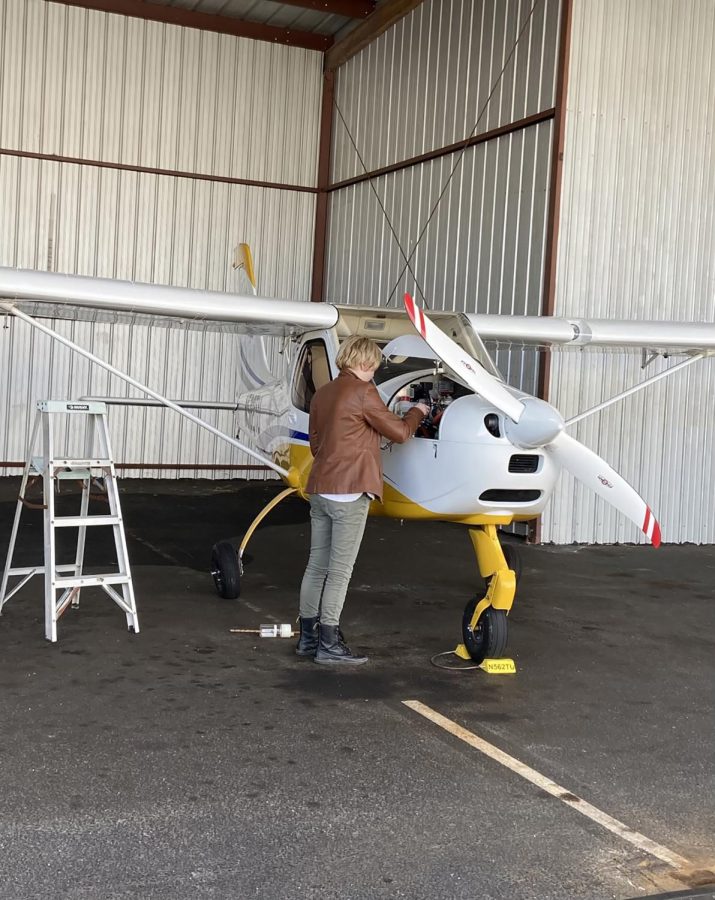AACC students earn pilot’s licenses, fly planes
Photo courtesy of Jenna Lagoey
Second-year communications student Jenna Lagoey, who earned a pilot’s license in 2021, prepares a Tecnam P92 plane for takeoff.
November 11, 2022
The first time third-year physics student Bryant Pepe flew a plane, he was just 9 years old.
On a flight to the Outer Banks with his mother and sister on a small, single-engine plane, the pilot asked him, “Do you want to fly?”
“Yeah,” said Pepe, who recalls that “my feet couldn’t touch the paddles [or] floorboard. It was the first time I laid my hands on my control.”
Now 34, Pepe has a private pilot’s license and is working on his commercial credentials. His motivation: “The whole story is that you get it from birth,” said Pepe, whose father was a Navy pilot.
Pepe isn’t the only Riverhawk who is taking to the skies with a private pilot’s license.
Second-year communications student Jenna Lagoey’s father flies, too, so “I’ve been, like, in and out of planes since I was, like, a couple of months old,” said Lagoey, who earned a private pilot’s license in August 2021.
Second-year psychology student Micah Smith, who started working toward a license early this year, also said he got hooked on flying when he was a kid.
“There is nothing like it,” Lagoey said. “It’s really, really wonderful and it’s hard to pin down, honestly. … But there’s something about it. … You begin to kind of get a feel for the plane when you’ve been flying it for a while, like you can feel that kind of rush when it takes off.”
Smith described a different experience.
“It’s a weird feeling,” Smith said. “It’s better than driving a car, definitely. It’s really stress free. Just being able to see the horizon … it’s calming. It’s really cool.”
The pilots agreed that learning to fly was easier than they expected.
“The hours fly by faster than you would think,” Smith said. “And if you really wanted to get done, it takes like less than a year to really get it all done.”
“Something that seems so monumentous may not seem so once you get there,” Pepe said. “It might become second nature. People might surprise themselves. And I think that happens more often than people give it credit for.”
Pepe added: “The more you learn and the more comfortable you get in your skills, the less effort you exert and the more you feel everything around you. You know, you feel the engine of your craft, you feel the wind blowing on you and you start to hear it.”
The pilots didn’t feel any of that during the first two years of the pandemic.
“You couldn’t get up in the air for, I think it was almost six months,” Lagoey said. “So when I started up my training again, I kind of—not lost it—but, you know, if you’re not doing something, like, every week, it can be kind of hard. It’s not as natural, so I kind of had to redo some stuff [so] things took a little bit longer.”
Pepe encouraged other students to consider learning to fly.
“Anybody who’s interested in pursuing aviation owes it to themselves to give it a try,” Pepe said.
“It’s just a really expensive process,” Smith said. “It’s not that hard.”












